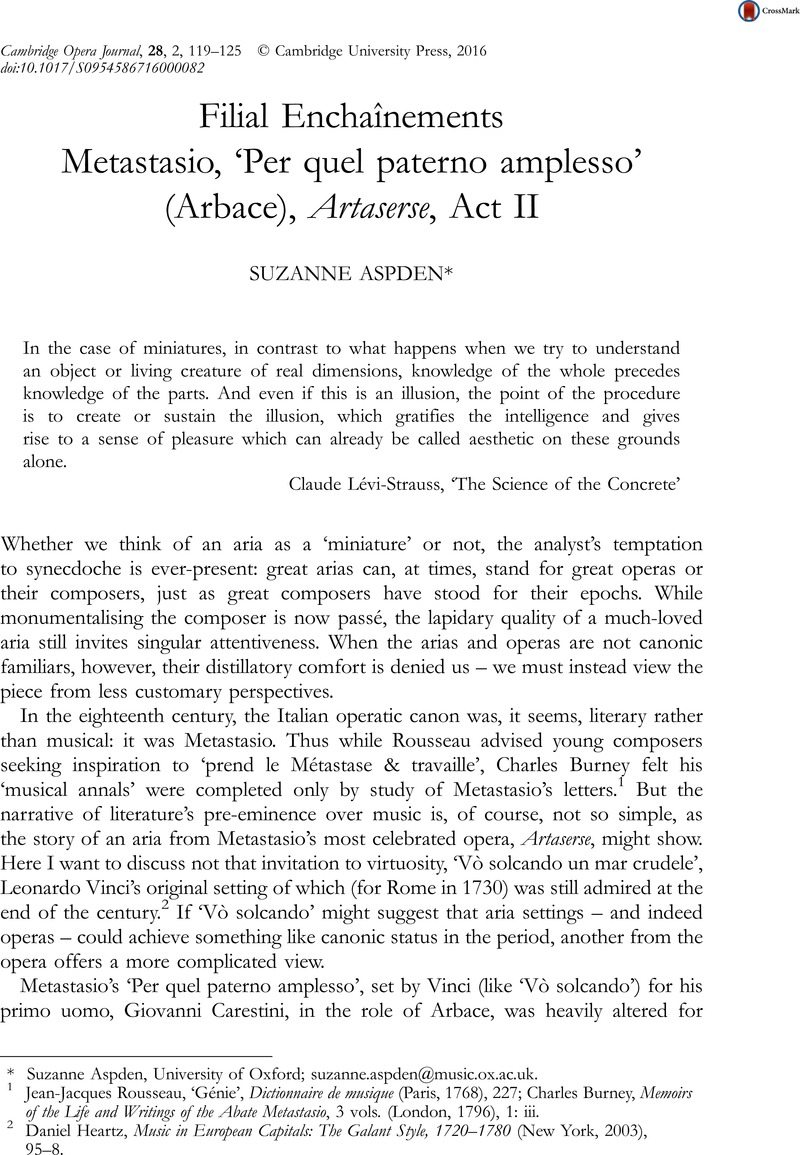No CrossRef data available.
Published online by Cambridge University Press: 28 September 2016

Suzanne Aspden, University of Oxford; [email protected].
1 Rousseau, Jean-Jacques, ‘Génie’, Dictionnaire de musique (Paris, 1768), 227 Google Scholar; Burney, Charles, Memoirs of the Life and Writings of the Abate Metastasio, 3 vols. (London, 1796)Google Scholar, 1: iii.
2 Heartz, Daniel, Music in European Capitals: The Galant Style, 1720–1780 (New York, 2003), 95–98 Google Scholar.
3 On Farinelli’s apparent role preference, see Desler, Anne, ‘From “Oh virtù che innamora!” to “Son pastorello amante”: Farinelli and Metastasio’s Artaserse ’, in Music Observed: Studies in Memory of William C. Holmes, ed. Colleen Reardon and Susan Parisi (Warren, MI, 2004), 117–139 Google Scholar.
4 Strohm, Reinhard, Dramma per Musica: Italian Opera Seria in the Eighteenth Century (New Haven, 1997), 78–79 Google Scholar. Strohm and Heartz offer enlightening readings of this aria in (respectively): Italienische Opernarien des frühen Settecento: (1720–1730), 2 vols. (Cologne, 1976), 2: 67–70; and Music in European Capitals, 311–13.
5 While Vinci also uses a falling lombardic motive on ‘questo’, the ubiquity of the lombard rhythm does not give this motive the character it has in Hasse’s aria.
6 On the possibility that Farinelli’s legendarily poor acting may have been deliberate, see Desler, Anne, ‘“The Little That I Have Done is Already Gone and Forgotten”: Farinelli and Burney Write Music History’, Cambridge Opera Journal 27 (2015), 215–238 CrossRefGoogle Scholar.
7 Strohm, Reinhard, The Operas of Antonio Vivaldi, 2 vols. (Florence, 2008), 2: 552–556 Google Scholar; Poriss, Hilary, ‘Making Their Way through the World: Italian One-Hit Wonders’, 19th-Century Music 24 (2001), 221 CrossRefGoogle Scholar.
8 Poriss, ‘Making Their Way’, 210.